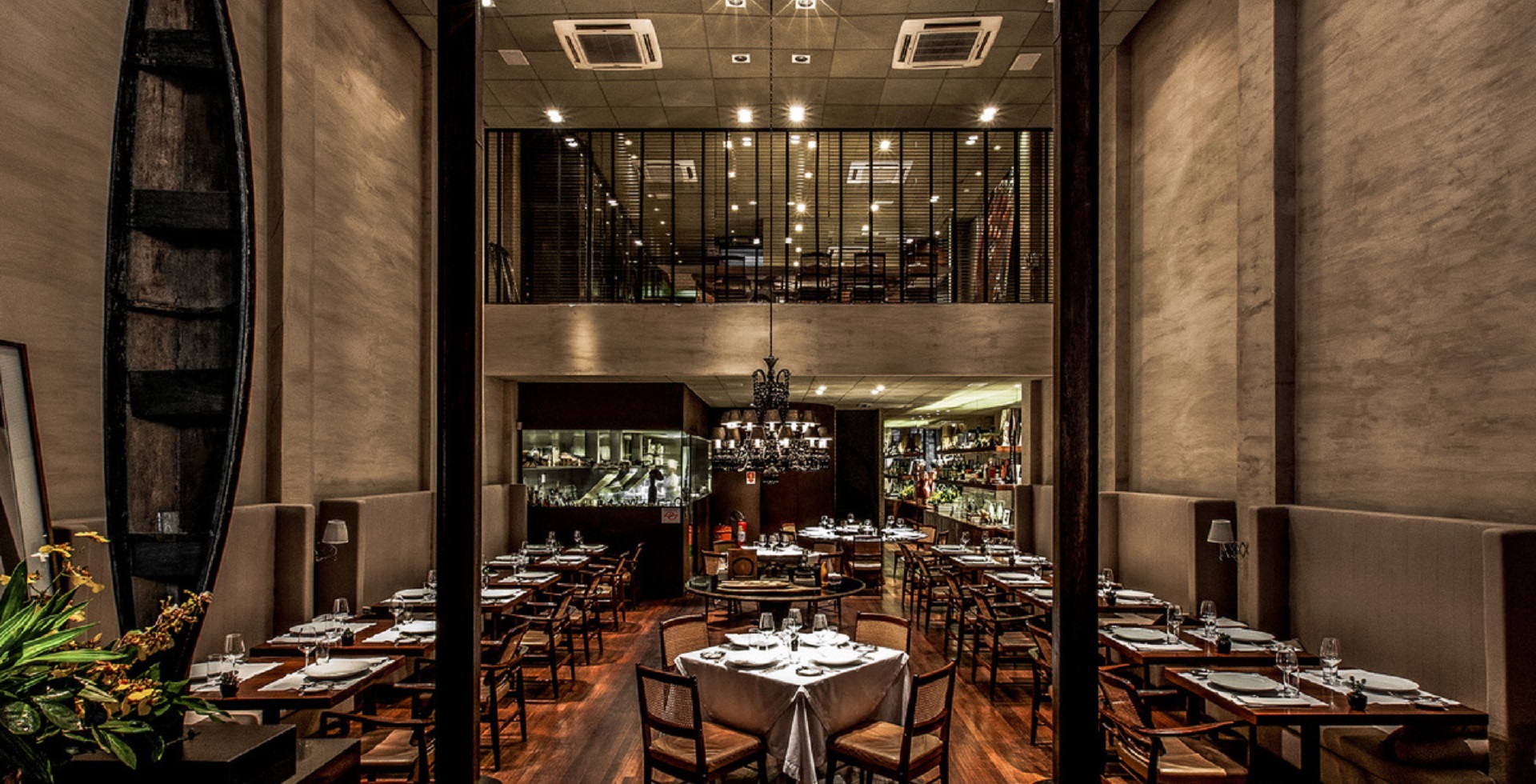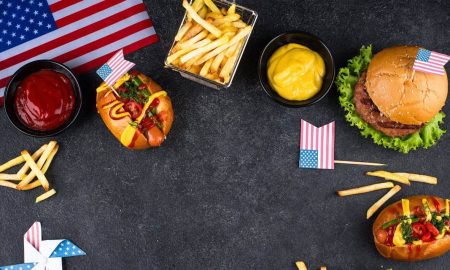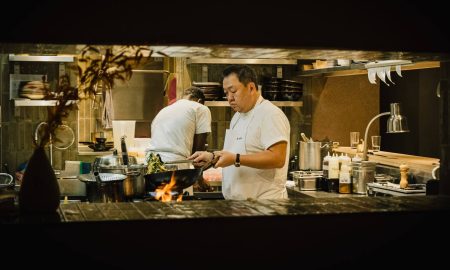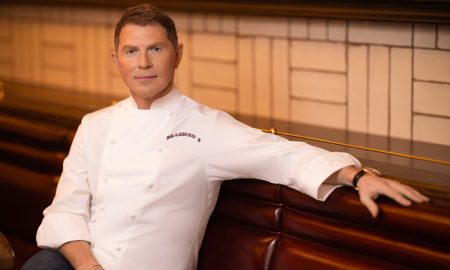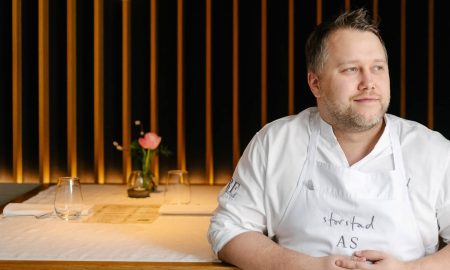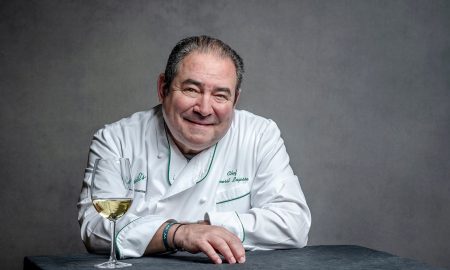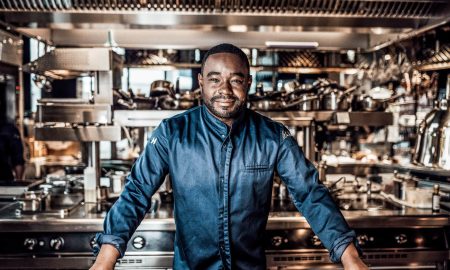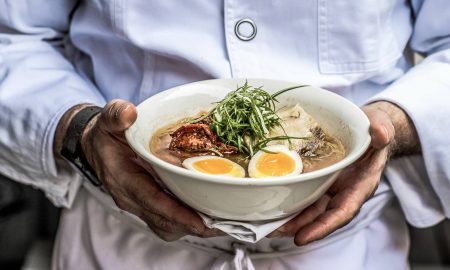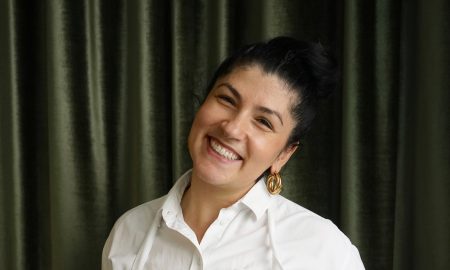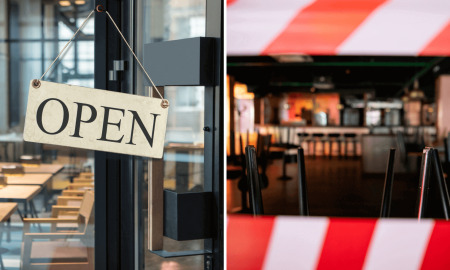Green deserts. This is what Alex Atala is most afraid of. They are his personal nightmare. One that makes him desperate in weak moments, but also one that inspires him. Because he fights against them like no one else who is working in the kitchen – and has done so with considerable success for over twenty years.
But what is it that keeps the chef so busy and, strictly speaking, is a contradiction in terms? These green deserts are not just anywhere, they’re in Brazil. More specifically, in the Amazon. And no, we’re not talking about the rainforest, which looks like green cotton wool from a bird’s eye view. “We’re talking here about fields of soybeans, grain and rice,” says Atala. “They sterilize entire regions until nothing lives there anymore. No birdsong, no buzzing insects, nothing. Everything is dead there.”
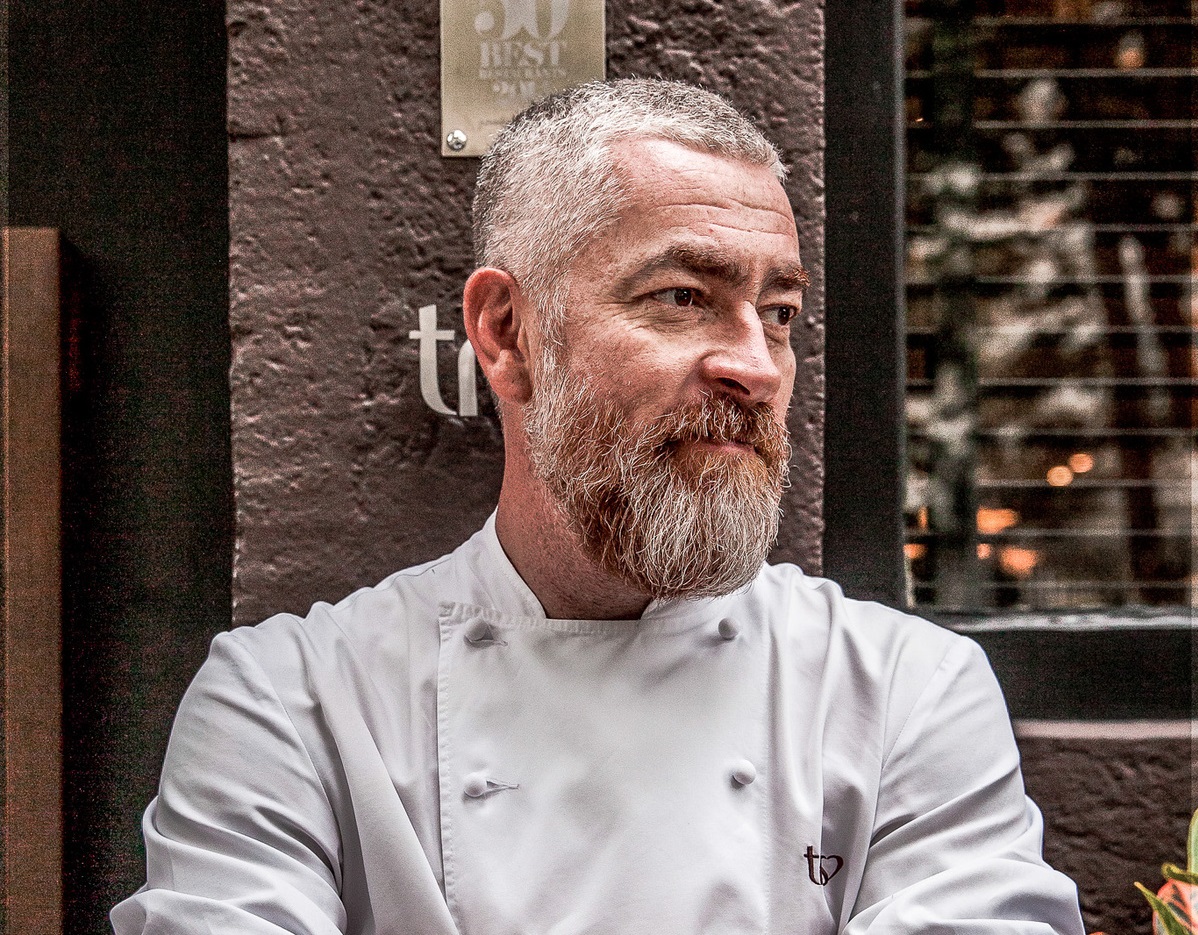
Image: Rubens Kato
The phenomenon of Alex Atala cannot be understood without this nightmare-like picture of green deserts. Around 25 years ago, the now 55-year-old opened his restaurant D.O.M. in Sao Paolo. During these 25 years, he turned it into a culinary bastion against everything that has to do with these devilish green deserts. In doing so, he achieved something that no one had ever managed before: He gave Brazil a gastronomic identity. Today, Atala is therefore considered a national hero, not to mention a gastronomic master. This is not just because he instilled Brazil with culinary self-confidence, but also because he made the country’s food production fairer and more sustainable. But how did he get there?
Alex Atala’s vision of Brazilian cuisine
“When I opened D.O.M in the late 1990s, Brazil was known for two things: Samba music and football,” recalls Atala. “Nobody was interested in Brazilian cuisine, not even the Brazilians themselves!” Why? “Because Brazil’s cuisine was considered a filling blue-collar meal, nothing more,” explains the likable top chef, referring to national dishes such as the bean stew Feijoada or the fish stew Moqueca.

Image: Wellington Nemeth
However, Alex Atala was already convinced back then: Brazil can do more than just make blue-collar food. “Brazil is a huge country that is blessed with incredible biodiversity. My goal was to bring this variety to the plates. Although everyone advised me against doing so, because they didn’t think anyone would be interested.” Of course, people were interested – but only because Alex Atala approached things carefully.
Alex Atala: From punk DJ and painter to gourmet cuisine
He did this by enticing his compatriots with familiar flavors. “I cooked with products that were more or less familiar throughout Brazil, but I worked with them in a creative way. This brought surprises from time to time – especially as creative cuisine was only found in French or Italian restaurants at the time. But it didn’t overwhelm people,” Atala explains.
He had learned his creative craft in Europe, and this although he didn’t actually go to Europe to learn how to cook. He actually went there to try to make it as a punk DJ. “My youth in Sao Paolo was shaped by punk rock culture, I even played in a band! For me, Europe was the place of punk, which is why I wanted to leave Brazil when I was 18.” In Belgium, young Alex tried to join the local party scene and worked as a painter to make ends meet. Until his visa expired, that is.
Sieh dir diesen Beitrag auf Instagram an
“A painter friend told me one of the easiest ways to get your visa extended was to take a cooking course,” Atala recalls with amusement. So instead of being deported back to Brazil, he enrolled at the hotel management school in Namur, Belgium. That’s where he discovered the magic of cooking. “I knew immediately that I wanted to learn all these techniques I was seeing for the first time from the best.”
This was followed by several years at the best restaurants in Belgium, France and Italy, including prestigious addresses such as Jean Pierre Bruneaus, or Bernard Loiseau’s legendary three-star La Côte d’Or. In Milan, the Brazilian finally made a decision that would change his life: to go back home. The reason was the upcoming birth of his son. “I wanted him to be a Brazilian,” he says. He also wanted to show his homeland what he could do – and what it had to offer.
Atala’s secret to success: Forgotten products from the Amazon
The success of D.O.M., where Atala consciously started out serving only familiar Brazilian flavors, gave its founder the self-confidence he needed to go one step further. So Alex Atala increasingly sought out unknown and forgotten products. He found what he was looking for above all in the Amazon, an inexhaustible wonderland of biodiversity. From ants to palm hearts, manioc and turtle meat to rare fish such as the Amazonian Pirarucu or the skeletonless Bodó – with his culinary gold-digging adventures, he suddenly gave visibility to small producers in the middle of the rainforest. “People soon understood that our dishes are not just about taste for the sake of taste, but also about culture, sustainability and social justice.”

Image: Leandro Lourenço
It hit the nerve of the times. People from all over the world began taking an interest in this new, combative, adventurous, but at the same time delicate and masterful cuisine. With dishes such as the sweet and sour ant with pineapple or hearts of palm in coconut milk, Atala not only turned his homeland upside down in culinary terms, he also succeeded in getting international gourmet guides to include a Brazilian restaurant in their lists for the first time ever. In the prestigious World’s 50 Best list, D.O.M. ranked fourth at peak times, Alex Atala was the first chef in Brazil to be awarded two stars by the Michelin Guide, and Time magazine listed him among the 100 most influential people in the world in 2013. So, he’s already achieved everything there is to achieve. Right?
Alex Atala’s battle continues
“D.O.M. has changed a lot of things, yes,” says the unintentional national hero. “However, we are still a long way from reaching our goal.” Statements like this are why Atala – unlike many of his fellow celebrity chefs – has decided not to open any more restaurants at home or abroad. Instead, he keeps up the fight exactly where it’s needed. In D.O.M., on the one hand.
He also co-founded the ATA Institute, which researches sustainability solutions in Brazil’s food chain. “Thanks to the institute, we have managed to reduce transportation costs so that small producers are left with more. We have managed to get niche products such as fermented honey or unpasteurized cheeses approved. And this is exactly what I am continuing to do, without being distracted by any expansion projects. Brazil must not become a green desert. Never!”


